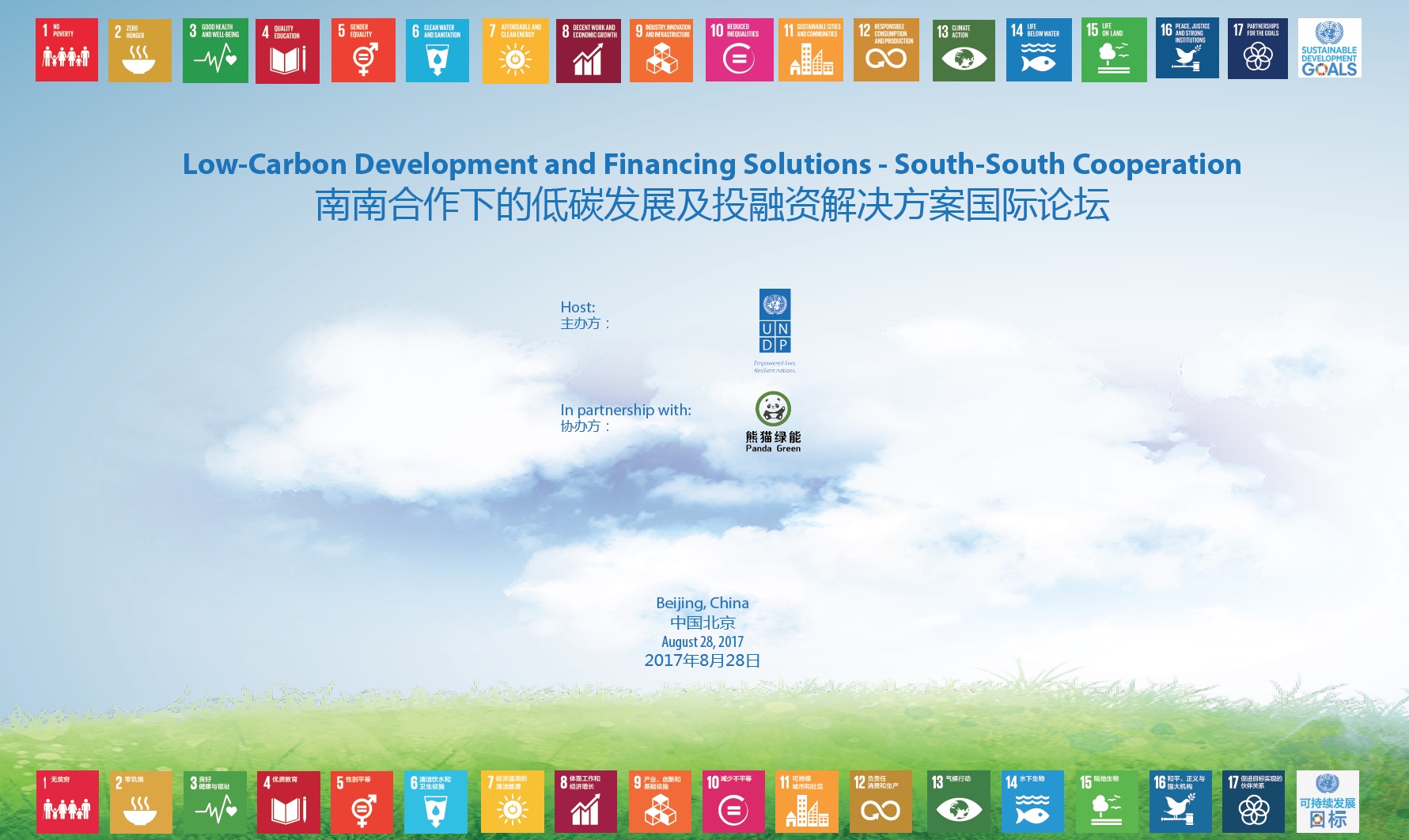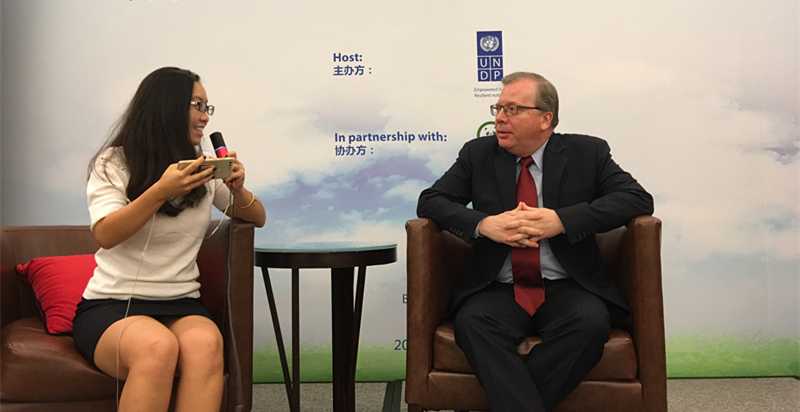B&R boosts South-South Cooperation in Low-Carbon Development
chinagate.cn,August 30, 2017 Adjust font size:

UNDP Country Exchange Workshop
On August 28th, the United Nations Development Programme (UNDP) in China hosted a“Low-Carbon Development and Financing Solutions” workshop in Beijing to provide a platform for dialogue between developing countries to exchange experiences on development solutions from China.
Attendees included government officials from China and over twenty other Belt and Road (B&R) countries from Asia and Africa, including Ethiopia, Bangladesh, Maldives, Pakistan, Sri Lanka, Myanmar, Nigeria and Philippines; representatives from leading Chinese and international financial institutions, such as National Energy Administration, AIIB, China Development Bank and CAD Fund; as well as key private sector companies.
They discussed how China’s low-carbon solutions and development financing can benefit other developing countries. They also discussed how to better understand each B&R countries’ development needs and the roles of different sectors. Concrete examples of new innovative models for development financing were presented.
Speaking at the forum’s opening ceremony, Nicholas Rosellini, UN Resident Coordinator and UNDP Resident Representative said,“China has become a major economic partner for other developing countries, providing not only increasing financing but also critical knowledge, skills and technology that have proven to be relevant to other developing countries’ national contexts,”He added,“Given its abundant experience and technology in renewable energy and low-carbon development, China has made important commitments to supporting other countries’ low-carbon development and efforts to combat climate change effects.”

Nicholas Rosellini, UN Resident Coordinator and UNDP Resident Representative, speaks with China.org.cn in an exclusive interview
In an exclusive interview with China.org.cn, Mr. Rosellini was asked about the role of the B&R in promoting South-South cooperation. He noted that the goals of the B&R and those of the 2030 agenda for sustainable development are consistent. B&R investments in areas such as but not limited to connectivity, industrialization, and infrastructure can help stabilize and improve the economies of fragile and or low-income countries. The B&R can advance South-South cooperation and act as an accelerator to achieving the sustainable development goals.
When asked about the perspective of the UN on the ways that the B&R helps countries dealing with climate change, Mr. Rosellini said,“Connectivity, which the B&R aims to promote, can take the form of sharing experiences. Other countries can learn from China about its experience of shifting to low-carbon development paths. Chinese companies investing in the B&R countries must be sensitized to ensuring that their investments are green and clean.”
He emphasized that the while the sustainable development goals focus on sustainability, it is not limited that of the environment. Social and economic sustainability, achieved by investing in people and inclusive development, are equally as important. China has made a massive impact in terms of poverty reduction policies and economic development over the last few decades. It has contributed enormously to the achievement of the Millennium Development Goal on poverty reduction. He stated that the UN hopes China can further exchange its knowledge and experience of poverty reduction with other developing countries.